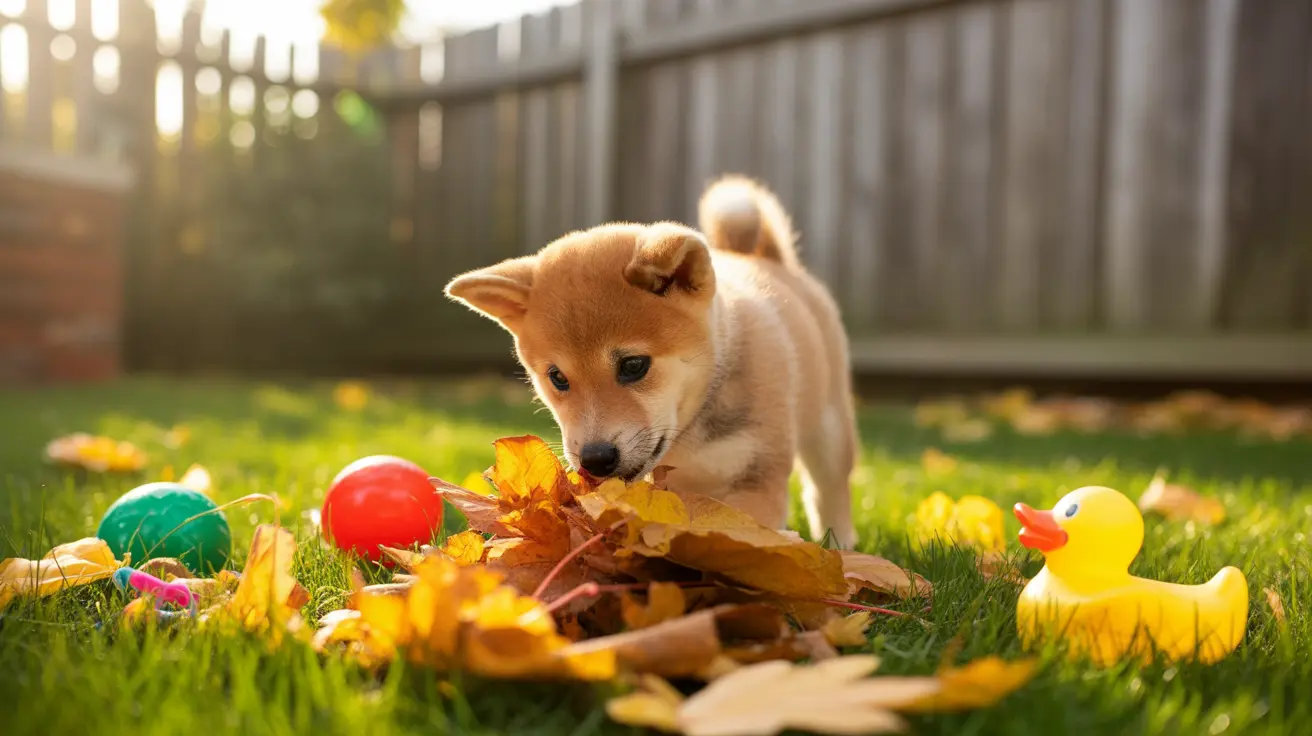If you've caught your dog eating poop, you're not alone. This behavior, scientifically known as coprophagia, affects approximately 24% of dogs at least once in their lifetime. While disgusting to us, this habit has deep roots in canine evolution and can stem from various causes ranging from natural instincts to medical conditions.
Understanding why dogs engage in this behavior is crucial for addressing it effectively. Let's explore the scientific reasons behind coprophagia and learn practical solutions to help your furry friend overcome this unsavory habit.
The Evolutionary Background of Poop Eating
Dogs' ancestors were scavengers who developed different standards for what constitutes food. This evolutionary history helps explain why modern dogs might view feces as a potential food source. Mother dogs naturally clean their puppies by consuming their waste, a behavior that keeps the den area clean and protects puppies from predators who might be attracted to the scent.
Why Do Puppies Eat Their Poop?
Puppy coprophagia is particularly common and often stems from natural curiosity and learned behavior. Puppies might observe their mother's cleaning behavior and mimic it. Additionally, young dogs explore their world through their mouths, making them more likely to sample everything they encounter, including feces.
Medical and Nutritional Causes
When dogs suddenly begin eating poop, it could signal underlying health issues. Several medical conditions can trigger this behavior, including:
- Parasitic infections
- Enzyme deficiencies
- Malabsorption disorders
- Diabetes
- Thyroid problems
- Cushing's disease
Nutritional deficiencies play a significant role in coprophagia. Dogs may eat feces to obtain nutrients that weren't properly absorbed during initial digestion. This is particularly common in dogs fed low-quality diets or those with digestive issues.
Behavioral Factors
Sometimes, coprophagia develops as a behavioral issue rather than a medical one. Common behavioral triggers include:
- Stress and anxiety
- Attention-seeking behavior
- Boredom
- Response to punishment during house training
- Environmental factors like overcrowding
- Lack of mental stimulation
Prevention and Treatment Strategies
Addressing coprophagia requires a multi-faceted approach:
- Maintain regular veterinary check-ups to rule out medical causes
- Ensure proper nutrition through high-quality dog food
- Keep living areas clean and promptly remove waste
- Provide adequate exercise and mental stimulation
- Use positive reinforcement training methods
- Consider enzyme supplements or deterrent products if recommended by your vet
Frequently Asked Questions
Why do dogs eat their own poop, and what are the common reasons for this behavior?
Dogs may eat poop due to evolutionary instincts, nutritional deficiencies, medical conditions, or behavioral issues. Common reasons include curiosity in puppies, maternal instincts, stress, and dietary imbalances.
How can I prevent my dog from eating poop in the yard or park?
Immediate cleanup, consistent training, keeping your dog engaged during walks, and teaching strong "leave it" commands can help prevent this behavior. Using deterrent sprays and ensuring proper nutrition may also reduce the tendency.
Are there any health risks associated with dogs eating poop, and how can I identify them?
Yes, eating feces can expose dogs to parasites, bacteria, and viruses. Watch for symptoms like vomiting, diarrhea, weight loss, or changes in appetite. If you notice these signs, consult your veterinarian immediately.
Can nutritional deficiencies cause dogs to eat poop, and what dietary changes can help?
Nutritional deficiencies can indeed trigger coprophagia. Switching to a high-quality, digestible diet rich in nutrients and enzymes may help. Some dogs benefit from probiotic or enzyme supplements under veterinary guidance.
How do I diagnose and address underlying medical conditions that might be causing my dog to eat poop?
Start with a comprehensive veterinary examination, including stool tests for parasites and blood work to check for metabolic conditions. Your vet may recommend additional testing based on your dog's specific symptoms and history.
While coprophagia is an unpleasant behavior, understanding its root causes is the first step toward resolution. With proper veterinary care, nutrition, and training, most dogs can overcome this habit. Remember to approach the issue with patience and consult your veterinarian for personalized advice based on your dog's specific needs.






